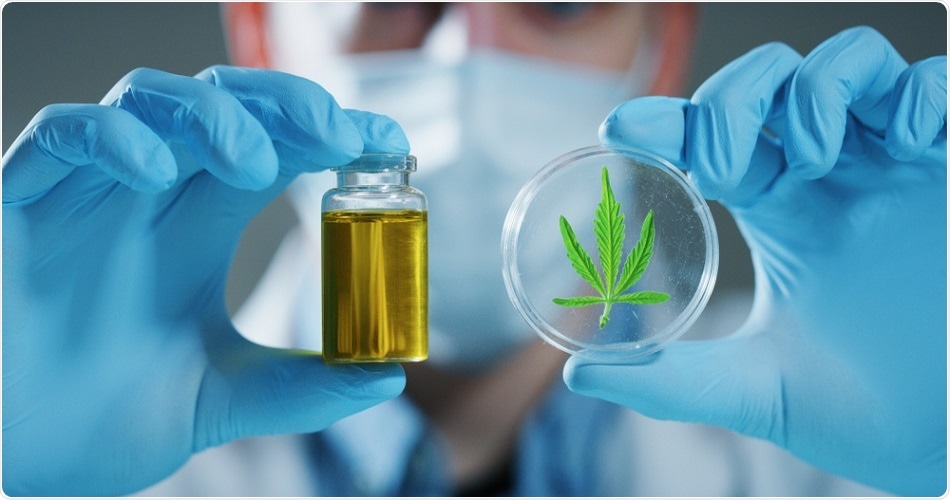A new study published in the Journal of Neuroscience demonstrates how cannabidiol (CBD) works against tetrahydrocannabinol (THC), which is the principal psychedelic component of cannabis, to prevent its psychiatric side effects. They explored the role played by a molecule called extracellular signal-regulated kinase (ERK) in the brain hippocampus, and found it was responsible for the psychological effects of THC.
 HQuality | Shutterstock
HQuality | Shutterstock
Earlier research has shown that cannabis plants with higher levels of THC and lower levels of CBD have a greater tendency to produce paranoia and other psychiatric side effects, as well as to induce anxiety and addiction. These two compounds, called phytocannabinoids, act differently to modulate the brain response to environmental stimuli that promise a reward (called ‘cues’). This is called salience, and describes how a given cue is different or outstanding compared to surrounding cues. Salient cues are relevant and evoke appropriate attention in normal people. When the individual abuses drugs, the brain gives greater attention to cues that evoke the drug of abuse, giving them the status of a motivational incentive. In psychotic individuals, useless stimuli are invested with great salience and thus attract greater attention and motivate behavior inappropriately.
The association of relevance with emotional states is regulated by the ventral hippocampus through dopamine-releasing neurons. The activity of these neurons is poorly or wrongly controlled in individuals with psychotic behavior.
What the researchers did
To find out more about how this works, the study fed rats with different cannabinoid compounds. Those who were given THC showed a higher concentration of ERK in the hippocampus of the brain, displayed more anxious behavior, and were quicker to learn skills in response to fear (fear-based learning). This was accompanied by faster and stronger dopamine release by neurons in the hippocampal region, slower release of the inhibitory nerve transmitter GABA, and increased brainwave activity in response to ERK modulation. These responses closely resemble symptoms of psychosis.
However, when the rats were given both CBD and THC, they showed normalized levels of ERK, were less anxious and did not respond readily to learning programs based on fear. CBD in the presence of THC reduced ERK signaling. This was proved by giving the rats a drug that reactivated ERK. This led to a reversal of inhibition by CBD.
The researchers arrived at the conclusion that CBD possibly blocks the THC-mediated ERK phosphorylation, inhibiting the ERK signaling in the hippocampus that causes psychosis-like effects. This inhibition prevents the hyperstimulation of this area in response to THC.
Implications of the study
The study thus identifies, at molecular levels, a currently unknown mode by which CBD interferes with brain processes. The implications of the study are obvious. For people who are vulnerable to develop psychotic-like symptoms with cannabis but require this drug for therapeutic indications, the key is to use cannabis from plants that have high CBD and low THC levels. Another useful avenue is producing safer TCH formulations with higher efficacy on the basis of this discovery.
CBD by itself had no effect. However, by co-administering CBD and THC, we completely reversed the direction of the change on a molecular level. CBD was also able to reverse the anxiety-like behaviour and addictive-like behaviour caused by the THC.”
Researcher Roger Hudson
The team will, therefore, look deeper into how this mechanism works, and how to make therapeutic preparations that produce more THC with minimal adverse reactions, and also make better formulations based on CBD.
Journal reference:
Cannabidiol counteracts the psychotropic side-effects of δ-9-tetrahydrocannabinol in the ventral hippocampus through bi-directional control of ERK1-2 phosphorylation. Roger Hudson, Justine Renard, Christopher Norris, Walter J. Rushlow and Steven R. Laviolette. Journal of Neuroscience. 30 September 2019, 0708-19; DOI: https://www.jneurosci.org/content/early/2019/09/27/JNEUROSCI.0708-19.2019